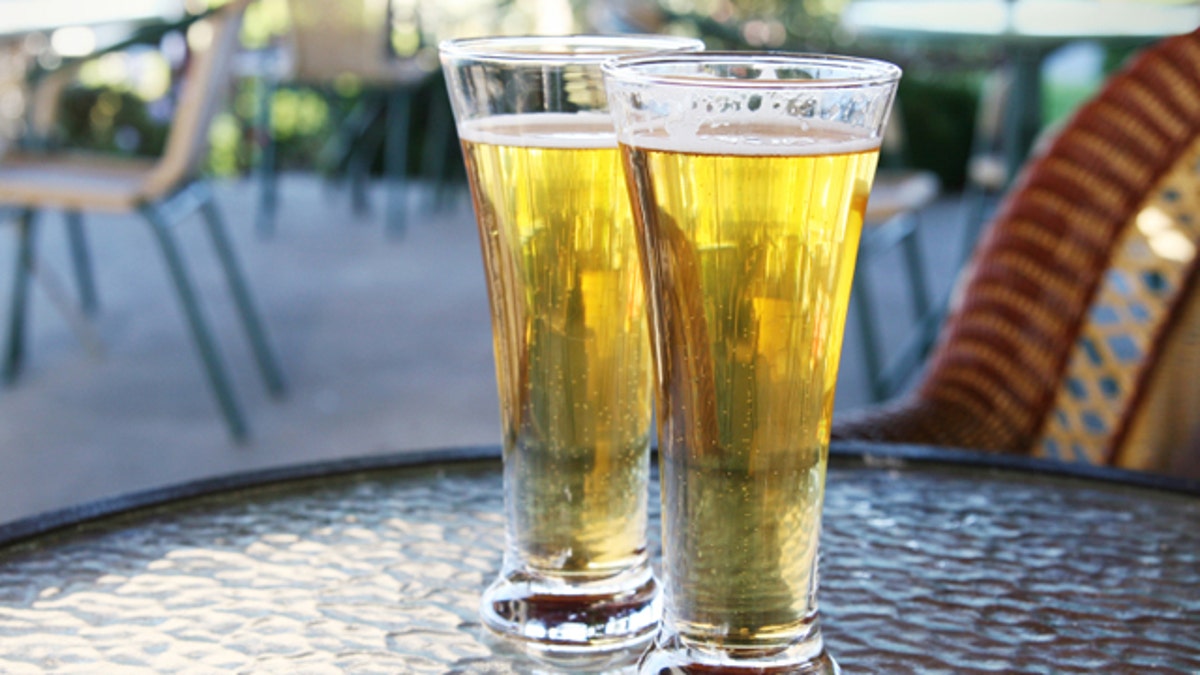
(iStock)
Regularly drinking, even in moderation, raises the long-term risk of many kinds of cancer, according to a new study.
A burgeoning body of research links alcohol to cancers of the breast, liver, colon, pancreas, mouth, throat, larynx and esophagus. A large new study last week added lung cancer to the list—even for people who have never smoked cigarettes.
For some of these cancers, such as lung, larynx and colorectal, the cancer risk only sets in when people drink heavily—three or four drinks a day on a regular basis. But just one drink a day raises the risk for cancers of the mouth and esophagus, several studies show.
And the risk of breast cancer starts to rise with as few as three drinks a week, according to the U.K.'s Million Women Study, one of more than 100 studies linking alcohol consumption and breast cancer.
For most cancers, the risks rise steadily the more alcohol people consume regularly. Overall, men who drink three or more drinks a day have a 41 percent increased risk of dying of any kind of cancer, and women raise their risk 20 percent by drinking two or more drinks a day, according to an analysis of U.S. government surveys published in this month's American Journal of Epidemiology.
"The situation is somewhat similar to tobacco a few decades ago," with drinking deeply rooted in social habits and promoted in advertising and movies, said Paolo Boffetta, director of the Institute for Translational Epidemiology at Mount Sinai School of Medicine in New York.
Scientists are pinpointing a variety of ways that alcohol can cause cancer—from raising estrogen levels to activating harmful chemicals in tobacco to damaging DNA and interfering with its repair.
Researchers have identified several gene variations that make some people particularly susceptible to alcohol-related cancers.
And public-health officials are urging primary-care doctors to be far more vigilant in asking patients about their drinking habits and letting them know that chronic alcohol consumption can be harming their health, even if they never binge or get drunk.
"Cancer doesn't happen overnight," said Samir Zakhari, director of the division of metabolism and health effects at the National Institute on Alcohol Abuse and Alcoholism. "It's the repeated exposure to alcohol over a long period of time that will cause damage and it has a cumulative effect."
Of course, not every regular drinker gets cancer and not everyone who gets cancer drinks. Only 3.5 percent of cancer deaths world-wide (230,000 a year) are attributable to alcohol, according to a 2006 analysis of World Health Organization data. But experts estimate that 90 percent of those deaths in men could be avoided if they drank no more than two alcoholic drinks a day and 50 percent of the deaths in women could be avoided if they drank no more than one.
In small amounts, however, alcohol helps clear coronary arteries, increases good cholesterol and reduces blood clots. Many studies show that consuming one to two alcoholic drinks a day lowers the risk of heart disease and stroke.
"The trick here is to adhere to moderate drinking. People who think that if one drink is good, more must be better, are getting the opposite results," said Dr. Zakhari.
Dr. Zakhari gave the example of a woman who drank heavily in college, then drank only one drink a week in later years and developed breast cancer.
"An epidemiological study could say that one-seventh of a drink a day causes breast cancer. But the cancer might have been initiated when she was drinking heavily in college, or she might have gotten cancer anyway even if she didn't drink," Dr. Zakhari said.
Still, alcohol seems to affect breast-cancer risk at many stages of life: Girls aged 9 to 15 who drink three to five drinks a week have three times the risk of developing benign breast lumps, which can lead to cancer, according to a study by Dr. Colditz in Pediatrics last year. Experts also estimate that the risk of breast cancer rises another 10 percent for each additional drink women regularly have a day.
Many unanswered questions remain. Study results have been mixed about whether some kinds of alcohol promote cancer more than others. (The Kaiser study found the strongest link with beer.) Researchers are still exploring the role of drinking patterns.
Dr. Colditz said, "If you drink, drink no more than one drink a day for women and one to two for men to maximize the potential benefit for heart disease, and avoid too much increase in cancer risk."








































